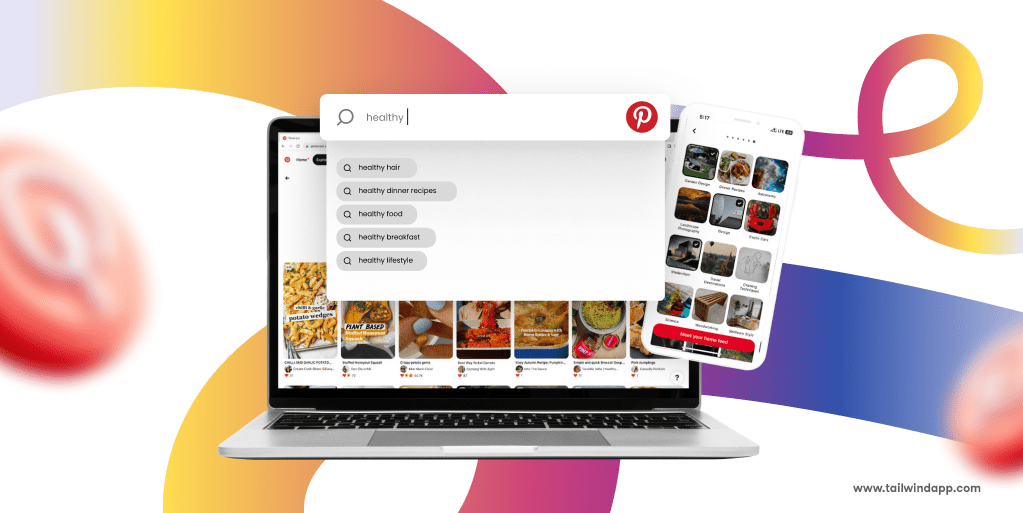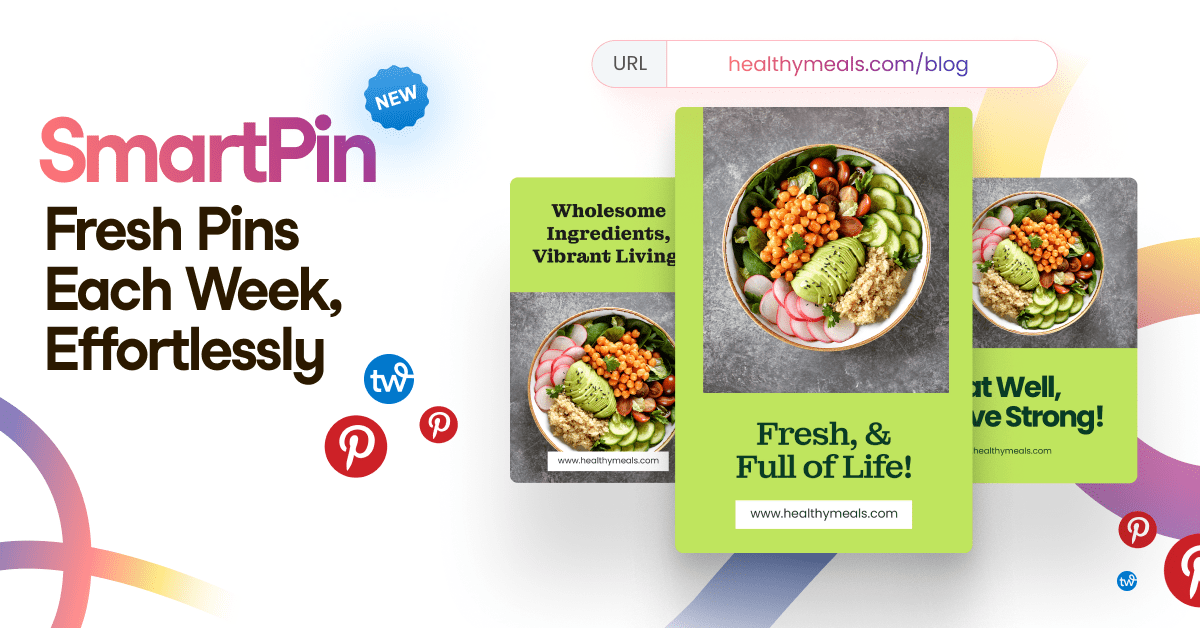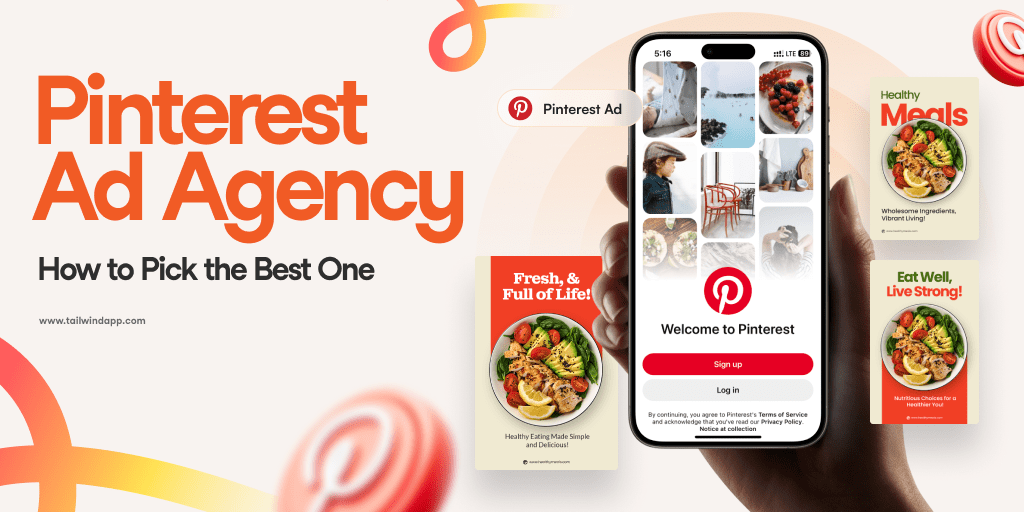
Though Pinterest is a visual search engine, at the heart of it lies keyword optimization.
When users search on Pinterest, the platform’s algorithm determines which Pins to display based largely on keywords and relevance. Understanding and implementing an effective Pinterest keyword strategy can dramatically increase your content visibility, engagement, and website traffic.
In this comprehensive guide, you’ll learn everything you need to know about Pinterest keywords — from finding the right terms to implementing them effectively across your Pinterest presence.
What Are Pinterest Keywords?
Pinterest keywords are the search terms and phrases users type into Pinterest’s search bar when looking for specific content.
These keywords act as the bridge between user searches and your Pins, helping the Pinterest algorithm understand what your content is about and when to show it.
Pinterest’s search algorithm works similarly to Google’s but with a visual focus.
It analyzes text in Pin titles, descriptions, and even the images themselves to determine relevance to user searches. The algorithm also considers factors like Pin engagement, account authority, and content freshness.
Unlike traditional SEO keywords focused primarily on website content, Pinterest keywords often include more visual and action-oriented terms.
For example, while someone might search “content marketing tips” on Google, on Pinterest they might search “content marketing infographic ideas” or “Instagram content planning template.”
Why Pinterest Keywords Matter
Implementing the right Pinterest keywords is crucial for several reasons:
Increased Pin Visibility: Without proper keyword optimization, your Pins may never reach your target audience, regardless of how visually appealing they are. The Pinterest algorithm relies heavily on keywords to understand and categorize content.
Sustainable Traffic Source: Well-optimized Pins can generate traffic for months or years. Unlike Instagram or Facebook posts that typically have a lifespan of hours or days, Pinterest content has remarkable longevity when properly optimized with the right keywords.
Higher Conversion Rates: Users on Pinterest often have high purchase intent — they’re actively searching for solutions, products, or ideas. Meeting them with the right keywords increases the likelihood of conversion.
Competitive Edge: Many businesses underutilize Pinterest keyword optimization, creating an opportunity for those who implement a strategic approach to stand out.
How to Find the Right Pinterest Keywords
Discovering effective Pinterest keywords requires a combination of platform-specific research and strategic thinking. Here are the most effective methods:
Pinterest Search Bar Suggestions
The simplest way to discover relevant keywords is through Pinterest’s search bar. As you type, Pinterest displays popular and trending searches related to your query. These suggestions are based on actual user search behavior, making them extremely valuable.
For example, typing “home office” might suggest completions like “home office desk ideas,” “home office organization,” or “small home office setup.”
Free Pinterest Keyword Tool by Tailwind
Analyze the keywords, spot the trends, and find which phrases will be best for your business with our own Pinterest Keyword Research Tool!
Guided Search Recommendations
After you enter a search term, Pinterest displays colorful buttons beneath the search bar with additional keyword suggestions to narrow your search. These guided search recommendations provide insight into popular subcategories and can inspire your keyword strategy.

Trending Section Analysis
Every day you have access to trending and timely topics that are covered on Pinterest. By analysing those you can get many ideas on what content to post that day and where to steer your short-term content strategy.
Regularly check Pinterest’s Today section to identify seasonal or trending topics in your niche. Incorporating these timely keywords can give your Pins a visibility boost during peak interest periods.
Pinterest Trends Tool
Pinterest offers a free Trends tool that shows the popularity of specific search terms over time. This tool helps you identify seasonal patterns and compare the performance of different keywords.
Audience Research Techniques
Understanding your target audience’s language and search behavior is crucial for effective keyword selection. Research how your audience describes your products or services by:
- Reviewing comments on your Pins
- Analyzing customer reviews and feedback
- Studying forums and communities where your audience is active
- Surveying your audience directly about their Pinterest search habits
Types of Pinterest Keywords to Target
For a comprehensive Pinterest keyword strategy, consider incorporating these different types of keywords:
Broad/Seed Keywords
These are short, generic terms with high search volume but also high competition.
Examples include “vegan recipes,” “home decor,” or “workout tips.” While important as a foundation, relying solely on broad keywords makes it difficult to stand out.
Long-tail Keywords
These longer, more specific phrases typically have lower search volume but higher conversion potential. Examples include “15-minute vegan breakfast recipes” or “small apartment Scandinavian living room ideas.”
Seasonal and Trending Keywords
Incorporate keywords related to upcoming holidays, seasons, or trends. Pinterest users often search for seasonal content months in advance, so timing is crucial. Examples include “fall outfit ideas,” “Christmas table setting,” or “summer salad recipes”.
Action-oriented Keywords
Pinterest users often search with action intent — they want to do something with the information they find. Keywords like “how to,” “DIY,” “tutorial,” or “ideas” perform well.
Product-specific Keywords
If you’re selling products, include specific keywords that describe your offerings, such as materials, colors, styles, or use cases. For example, “gold minimalist necklace” or “wooden farmhouse coffee table”.
Where to Use Pinterest Keywords
To maximize your Pinterest SEO, strategically place keywords in these key locations:
Pin Titles
Your Pin title should clearly describe the content while incorporating primary keywords. Aim for descriptive, compelling titles under 100 characters.
For example: “10 Easy Mediterranean Diet Meal Prep Ideas for Beginners | Healthy Lunch Recipes”
Pin Descriptions
Pin descriptions allow for more detailed keyword inclusion. Use 1-2 sentences with your most important keywords placed naturally within the first 50-60 characters. Include a mix of primary and secondary keywords, but ensure the text flows naturally.
Example: “These Mediterranean diet meal prep ideas are perfect for healthy weekday lunches. Learn how to prepare simple, nutritious meals using olive oil, fresh vegetables, and lean proteins. #mealprep #mediterraneandiet #healthyrecipes”
Board Names and Descriptions
Name your boards with clear, keyword-rich titles that users might search for. In board descriptions, include additional relevant keywords while maintaining natural language.
Profile Optimization
Your Pinterest business profile should include keywords relevant to your overall niche and offerings. Include these in your display name (when appropriate) and bio.
Alt Text for Images
Pinterest extracts image alt text from your website when Pins are created. Ensure these descriptions are keyword-rich and accurately describe the image content.
URL Structure Considerations
If creating a dedicated landing page for Pinterest traffic, incorporate relevant keywords in the URL structure for additional SEO benefits.
Hashtags
Our data suggests that Pinterest will scan hashtags to pull out the keywords in the hashtag.
Pinterest Keyword Research Tools
Tailwind’s Pinterest Keyword Finder
Tailwind’s Pinterest Keyword Finder is a specialized tool designed specifically for Pinterest keyword research. As an official Pinterest Partner, Tailwind offers insights directly relevant to the platform.
The tool is especially valuable for identifying long-tail keyword opportunities that might be missed through manual research. By revealing the actual search volume for specific terms, it helps prioritize your keyword strategy based on data rather than guesswork.
To use Tailwind’s Pinterest Keyword Finder effectively:
- Start with broad seed keywords relevant to your niche
- Review the suggested related terms and their search volumes
- Create clusters of related keywords for different content themes
- Identify seasonal patterns to plan content timing
- Export your keyword lists for implementation in your Pinterest strategy
Best Practices for Pinterest Keyword Strategy
Follow these best practices to maximize the effectiveness of your Pinterest keyword strategy:
Keyword Mapping for Different Content
Create a systematic approach by mapping specific keywords to different content types, boards, and campaigns. This organization helps ensure comprehensive coverage without keyword cannibalization.
Avoiding Keyword Stuffing
While keywords are important, Pinterest’s algorithm (like Google’s) can detect and penalize keyword stuffing. Focus on natural integration that enhances rather than detracts from user experience.
Maintaining Natural Language
Write for humans first, algorithms second. Your descriptions and titles should read naturally while incorporating strategic keywords.
Updating Keywords Regularly
Pinterest trends evolve quickly. Regularly audit and update your keyword strategy based on changing search behaviors and seasonal trends.
A/B Testing Different Keywords
Test different keyword combinations for similar content to identify which terms drive the most engagement and traffic. Pinterest Analytics can help track performance differences.
Measuring Pinterest Keyword Success
To evaluate and refine your Pinterest keyword strategy, focus on these key metrics:
Key Metrics to Track
- Impression Growth: Are more people seeing your Pins?
- Engagement Rate: Are users interacting with your Pins (saves, clicks)?
- Click-through Rate: Are users visiting your website?
- Conversion Rate: Are Pinterest visitors completing desired actions on your site?
- Search Visibility: How well are your Pins ranking for target keywords?
Pinterest Analytics Overview
Pinterest’s built-in analytics provide valuable insights into which Pins and keywords are performing best. Pay special attention to:
- Top Pin performance
- Audience interests
- Most clicked Pins
- Most saved Pins
- Traffic sources within Pinterest
- Home feed: People seeing your Pins in their personalized Pinterest home feed
- Search results: Users finding your Pins when they search for specific keywords
- Following tab: People who follow your account seeing your Pins
- Related Pins: Your Pins appearing in the “More like this” section below other Pins
- Board views: People discovering your Pins by browsing your boards or other users’ boards
Adjusting Strategy Based on Performance
Use your analytics data to continuously refine your keyword approach:
- Double down on high-performing keywords
- Expand on topics showing strong engagement
- Reconsider or revise underperforming content
- Identify new keyword opportunities based on successful patterns
Common Pinterest Keyword Mistakes to Avoid
Even experienced marketers make these common Pinterest keyword mistakes:
Targeting Only High-Competition Terms
Focusing exclusively on broad, high-competition keywords makes it difficult to stand out. Balance your strategy with specific long-tail keywords where you can more easily rank.
Ignoring User Intent
Understanding why users are searching for particular terms is crucial. Are they looking for inspiration, tutorials, or products to purchase? Align your content with user intent for better engagement.
Inconsistent Keyword Usage
Using different terms across your Pins, boards, and profile creates confusion for both users and the Pinterest algorithm. Maintain consistency in your core keyword themes.
Neglecting Seasonal Trends
Pinterest users often search for seasonal content months in advance. Missing these seasonal keyword opportunities means missing significant traffic potential.
Conclusion
A strategic approach to Pinterest keywords can transform your Pinterest presence from a passive visual showcase to a powerful traffic and conversion engine.
By understanding how the Pinterest algorithm works and implementing keywords strategically across your Pins, boards, and profile, you can significantly increase your content’s visibility and effectiveness.





